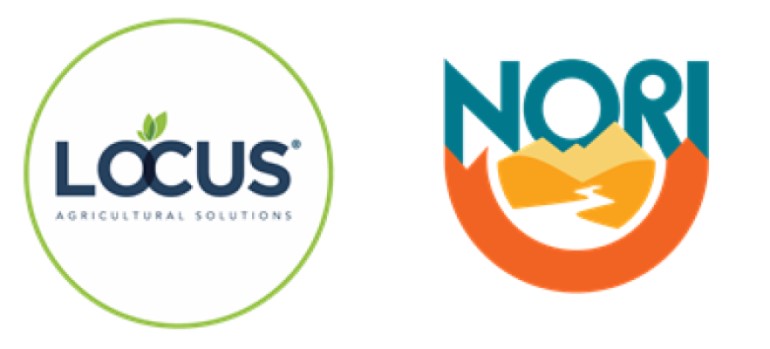Partnership to help monetize farmers for carbon sequestration
Farmers who work with Locus AG and Nori this year could sell carbon credits for $15 for every ton of carbon dioxide sequestered.
February 10, 2020

Two innovative startups in the carbon farming space, Locus Agricultural Solutions (Locus AG) and Nori, announced a partnership that provides a pathway for payments to farmers harvesting carbon.
Giving farmers an incentive to grow crops in a way that removes carbon from the air by using the most advanced nature-based technology can help turn one of the largest sources of greenhouse gas emissions into one of the largest sinks to combat climate change and increase food security.
“We could not be more excited about partnering with Nori to immediately monetize regenerative farming practices to benefit growers — and the entire planet,” Locus AG chief agronomist Paul Zorner said. “This collaboration takes advantage of Locus AG’s immediately scalable microbial solution that can be used to treat tens of millions of acres here and abroad and can make a significant impact by putting carbon in the soil where it belongs.”
Farmers who work with Locus AG and Nori this year and have been practicing regenerative agriculture since Jan. 1, 2010, or after will be able to sell their resulting carbon credits — which are currently selling for $15 — for every ton of carbon dioxide sequestered. After 2020, the price will be set by the open market. Starting in 2023, there could be an even bigger payout based on the record amounts of carbon that can be sequestered by using Locus AG’s Rhizolizer line of customized soil amendments.
“Working with Locus AG is an exciting start for us to help us scale our platform quickly and reward farmers for practices that will draw down carbon from the atmosphere,” Nori chief executive officer Paul Gambill said. “Our goal is to make it as easy as possible for farmers to get paid for taking action to remove and store carbon. We’re thrilled to be working with a group that shares that goal.”
Locus AG is at the forefront of the microbials-in-agriculture trend. The certified B Corp develops fresh, customized soil “probiotics” that supercharge soils’ ability to sequester carbon up to an additional nine metric tons of carbon dioxide equivalents per acre annually compared to grower practices. The certified organic soil amendment won the global Crop Science Award last year for Best New Biological Product (Biostimulants category) based on its proven ability to remove carbon and increase crop productivity.
Nori is using the COMET-Farm carbon and greenhouse gas accounting system supported by the U.S. Department of Agriculture’s Natural Resources Conservation Service and developed by the Natural Resource Ecology Laboratory at Colorado State University. This approach establishes a conservative estimate for creating standardized carbon baselines while having a pathway for innovative products like Rhizolizer to realize future carbon payments. Nori’s work also is mentored and guided by Techstars and The Nature Conservancy.
The Locus AG and Nori partnership is an important step forward in driving global adoption of agricultural practices that can have a substantial impact on climate change.
An Intergovernmental Panel on Climate Change (IPCC) report found that soil carbon sequestration is the lowest-cost way to remove and store excess atmospheric carbon dioxide. By adopting specific soil management and crop production practices, farmers can draw carbon dioxide from the atmosphere and deposit it in cropland soils. By using Rhizolizer — an inexpensive treatment that requires no changes to regenerative growing practices — growers gain additional benefits, including reduced use of chemical fertilizers and related costs and improved soil health that boosts yields and profit.
You May Also Like


.png?width=300&auto=webp&quality=80&disable=upscale)
